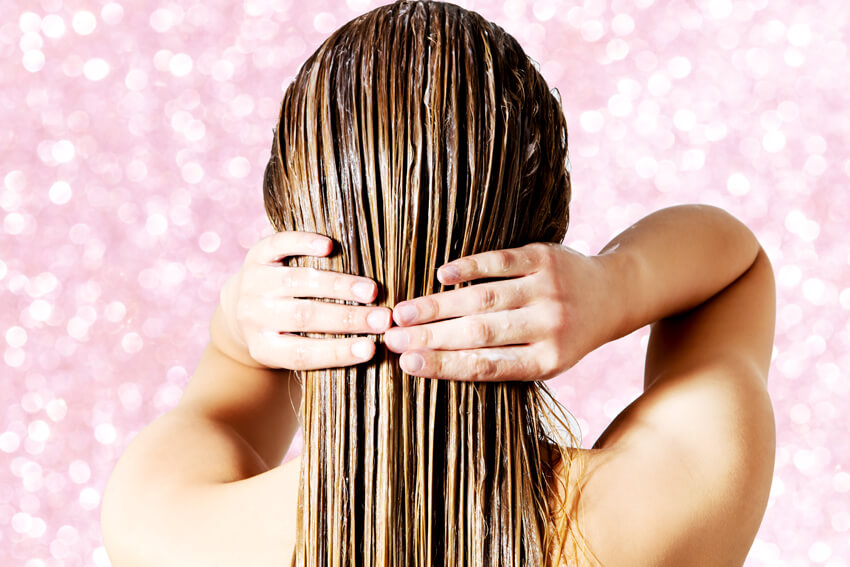This Is Why Your Hair Isn’t Growing
 Source: David Crotty/Getty Images
Source: David Crotty/Getty Images
Trying to grow your hair out and barely seeing a difference – if any difference at all – is crazy frustrating. The reality is that, on average, hair already grows super slowly at only ½ inch per month. That’s only six inches per year, people. When other issues start affecting this already snail-like pace, it can make it seem like your longer hair goals are downright impossible.
Ultimately, you must figure out what the issue is – which can range from scalp health to nutrition to heat styling tools – and tackle it head-on (pun intended). To help you pinpoint the most common reasons why your hair isn’t growing, we reached out to some pros.
Stress and/or Trauma
Though it might seem unrelated, your mental health can have a direct impact on your physical wellbeing. This includes your hair growth cycle.
“Ongoing stress or a traumatic event can cause something called telogen effluvium, which is when the hair leaves the resting phase of hair growth (telogen) and starts to shed excessively,” explains Gretchen Friese, a board-certified trichologist with BosleyMD. She notes that traumatic events can also include surgeries, deaths or illness of a loved one, and major personal changes – such as divorce, moving, having a baby, or even… A global pandemic.
It’s important to find ways to manage your stress for many reasons. Meditation, regular exercise, speaking with a mental health expert, and simply talking with friends and family can really help.
Unhealthy Scalp

An itchy, scabby, excessively oily, or flakey scalp is super uncomfortable. What’s worse, it can actually impact how well your hair grows. An unhealthy scalp can occur for a few different reasons, including poor hygiene, product buildup, and certain scalp disorders such as seborrheic dermatitis (AKA dandruff).
“Clogged scalp pores and follicles from heavy products, oil, and sloughed skin cells are impediments to healthy, efficient growth,” explains Steven Waldman, hairstylist and training director for Hair Cuttery. “Keeping the skin on your scalp flexible and stimulated with scalp massage is essential. Also, the right shampoo and conditioner goes a long way on the road to growing great hair.”
He advises really massaging your hair when washing to break down oil, dirt, and grime. This also helps stimulate blood flow, which is important for hair growth, as well. A soothing scalp treatment makes for a nice treat, while you’re at it! If you’re battling dandruff, try a medicated shampoo and don’t hesitate to dial in your derm.
Internal Health & Nutrition
Eating well, exercising often, and making sure your insides are operating as they should is integral to your overall health. When these things go sideways, it not only impacts your well-being but can stifle hair growth.
“Poor hair growth [might be caused] by medical issues such as anemia, low or high thyroid, vitamin deficiencies, or recent acute illnesses,” says Dr. Lucy Chen, a board-certified dermatologist at Riverchase Dermatology in Miami, Florida. “Many of the above can be remedied with better care of the hair, prescriptions, or supplements.”
On that note, Friese says to really be mindful of what foods you’re eating (or not eating). She notes, “A poor diet can cause issues with gut health, which can cause gut inflammation and bad bacteria. The bad bacteria can lead to hair loss.”
The rule of thumb is to prioritize lean meats, vegetables, fruits, and whole grains. There’s zero shame in grabbing a cupcake or a frappe every once in a while, but make sure you’re really getting those essential nutrients.
Posts You'll Love:
Damaged Hair

Brittle, damaged hair that’s susceptible to breakage can create an illusion of hair that won’t grow. Dr. Chen says, “For example, if you have damaged your hair from chemical dyes, relaxers, or excessive heat, there could be breakage of the hairs themselves.” Essentially, your hair breaks off more quickly than it can grow, which either creates stilted length – or in severe cases, shrinking length.
Longer hair might be particularly at risk of this since the hair is simply older at the ends. It’s important to always use a heat protectant when using a heat styling tool, and to space out any bleaching, dyeing, perming or hair relaxer appointments. In between appointments, really nourish your hair with deep conditioners and use bonding products, like Olaplex, that fortify the shaft.
If you’re experiencing ongoing issues regarding hair growth, it’s never a bad idea to visit a dermatologist or trichologist, says Dr. Chen. “This will allow for a workup that involves examining the health of the hair, scalp, or the person themselves.”
For more healthy hair hacks, check out 7 rules for growing you hair really long.





















Leave a comment